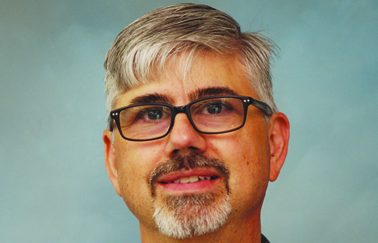Koutoulas: John Lewis’ legacy of passive resistance
Published 11:13 am Friday, August 7, 2020

- Pete Koutoulas is an IT professional working in Lexington. He and his wife have resided in Winchester since 2015.
|
Getting your Trinity Audio player ready...
|
I was a kid in the 1960s. I was too young to scarcely notice, much less comprehend, the tremendous changes occurring in the US. I did have a vague sense that there was much turmoil in our nation.
I could not know nor appreciate the sea change that was transpiring. But in later years, I studied the civil rights movement of the period. I remember listening to a recording of Dr. Martin Luther King’s famous “I have a dream” speech in middle school. Dr. King was — quite correctly — revered as the most influential of many leaders of the movement.
But there were many other giants of the civil rights movement during that period in American history. These included the likes of Malcolm X, Rosa Parks, Bayard Rustin, Roy Wilkins, James Farmer and others.
Perhaps the one member of this group who managed to accomplish the most in his long life was the towering figure who passed away last month: Georgia Congressman John Lewis.
Lewis grew up in rural Alabama, the son of sharecroppers. After graduating high school, he set his sights on attending Troy State College. But like most colleges and universities in the South, Troy State did not admit Blacks.
So Lewis got his first taste of having to fight for equality. He managed to form a relationship with Dr. King and considered a lawsuit to gain admittance to Troy State. Eventually, he decided not to pursue it, in part because he feared repercussions against his family.
Lewis went on to earn degrees from American Baptist Theological Seminary in Nashville and from Fisk University. He became an ordained Baptist minister.
At this point in his life, Lewis had already met influential members of the civil rights movement and had experienced a lot of discrimination in his own life. It seemed his destiny to become a lion of the movement himself.
One of the hallmark’s of Lewis’s philosophy was nonviolence, having been heavily influenced by Dr. King and James Lawson. Lawson had been a student of Mahatma Gandhi’s nonviolent approach and the strategies Gandhi had employed against Britain during India’s colonial period.
Lewis wrote the following about his nonviolent, passive resistance philosophy in his memoir.
“One method of practicing (nonviolence), when faced with a hateful, angry, aggressive, even despicable person, is to imagine that person — actually visualize him or her — as an infant, as a baby. If you can see this full-grown attacker who faces you as a pure, innocent child that he or she once was, it is not hard to find compassion in your heart.”
As a student in Nashville, Lewis worked with other students to stage sit-ins at local “whites-only” restaurants. They would show up in suits and ties, very dignified and quite passive, but requesting service. Despite taking beatings and other abuse from some white patrons, they stood their ground, refusing either to leave or to return violence in kind.
It worked. After just a few months, Nashville began the process of desegregating public spaces.
There were many other notable moments in Lewis’s young life as a civil rights crusader. He was abused and beaten for his activism. He got himself arrested something like 40 times.
He was perhaps best known for being among the protestors at the infamous Bloody Sunday incident in Selma, Alabama, in 1965. If you don’t know about this incident, please Google it. Lewis suffered a fractured skull that day.
Bloody Sunday was perhaps the turning point of the movement, finally lending mass public support to the newly-enacted landmark 1964 Civil Rights Act. It also spurred President Lyndon Johnson to propose what became known as the Voting Rights Act of 1965, which gave some teeth at the ballot box to the Civil Rights Act.
Lewis was elected to Congress in 1986 and served 17 terms in the U.S. House of Representatives. He became a leader in the Democratic Party, having served as a chief deputy whip and as senior chief deputy whip. He received many honorary degrees and awards, including the Presidential Medal of Freedom.
Fittingly, that medal was awarded in 2011 by the first Black president of the United States, Barack Obama. I wonder what was going through Lewis’s mind that day: whether he ever thought he would live to see a Black American president, much less receive such a distinction.
John Lewis helped achieve tremendous gains for Black Americans during his lifetime. But we still have far to go as a nation. There remains much work left to be done.
Pete Koutoulas is an IT professional working in Lexington. He and his wife have resided in Winchester since 2015. Pete can be reached at pete@koutoulas.me or follow him on Facebook at fb.me/PeteTheSun.





